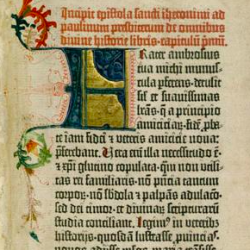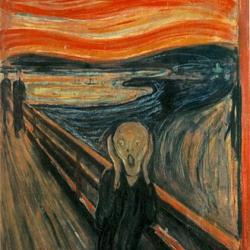 By Michael Liccione
By Michael Liccione
With his conservative confrères, British Catholic blogger Damien Thompson likes to call the British Catholic hierarchy "The Magic Circle." The phrase is meant pejoratively, of course. They see the bishops as a self-congratulatory cabal more interested in maintaining its élite status among "the great and good," including and especially the Anglican establishment, than in easing the path of traditional Anglicans into the Church or, more generally, in implementing the pope's policies for the Church at large.
If they're right -- and I have independent reason to think they are -- the fact itself is disturbing. Whatever the ideological coloration, if any, of a magic circle might be, just being part of a magic circle is usually bad for peoples' souls. It constitutes a culture of privilege that insulates them from the worst criticisms, causes them to think themselves better than others, and makes them resistant to reforms, the need for which is obvious to many outsiders. That sort of problem fueled the Protestant Reformation centuries ago. In a sense, the Catholic hierarchy in Europe and the Americas has continued to be a magic circle for a long time. But is that about to end?
With occasional and egregious exceptions, the Church hierarchy has been part of the Establishment, thus enjoying a presumption of good will on the part of government, big business, and high society. Indeed the exceptions, such as in Mexico and Spain for the early part of the 20th century, can be seen largely as reactions against that status. But in an atmosphere of ever-encroaching secularism, the sex-abuse-and-coverup scandals are fast destroying the status and most of what goes with it. I believe that faithful Catholics should greet that development the way Lenin greeted the travails of Russia in World War I: "the worse, the better."
Over at First Things' "On the Square," theologian R.R. Reno has lately been commenting on the iteration of the global scandal in the Belgian Church. In his latest installment, he notes:
Police raids, computers impounded, and holes drilled into crypts so that spy cameras can be inserted. Perhaps the chief investigator's office was as blindsided as the Vatican, suddenly waking up to the fact that the Church is now outside the magical circle of elite society, and that elite society, always attuned to changes in status, demanded the Church be treated differently. Scrambling to action, they overcompensated with heavy-handed tactics. [Emphasis added]
Generalizing, Reno observes that "after the scandals," the Church in Europe
. . . has become largely disestablished on the ground, with few going to church (a social reality the consequences of which were masked, perhaps, by the remarkable charisma of John Paul II), and therefore it can no longer retain the privileges of social establishment, one of the most important of which is protection from debilitating criticism.
If I'm right about the larger dynamics at work in the current round of scandals, the Church is in for a tough season. The expulsion from the elite makes her leaders supremely vulnerable.
Already true of the Church in Europe and Canada, I believe that will come true of the Church in the U.S. and the rest of the Western Hemisphere. The Church will be forced in the concrete to recall why cardinals' hats are red. That the trends in Africa and Asia are actually running in the opposite direction is a fact whose significance I shall explain at the end. For now, we must see the travails of the Church in the West as the beginning of a much-needed purification.
Two factors allowed the sex-abuse-and-coverup scandals across the globe to get out of hand: the strength of the old presumption of good will, which obtained as much among the laity as among the clergy, and the inability of the bishops in their magic circles to grasp that moral and legal rules applicable to ordinary people applied to them and their brother priests. Such is the consequence of belonging to a culture of privilege. Politicians, at least in relatively democratic countries, aren't insulated quite as well because their enemies often cannot resist using their peccadilloes against them. It takes more than mere peccadilloes, however, to destroy prominent clergymen. It takes being part of a systemic corruption that hits a moral nerve in the larger society. That's what's been happening. In the long run, that will have proven itself a good thing.




